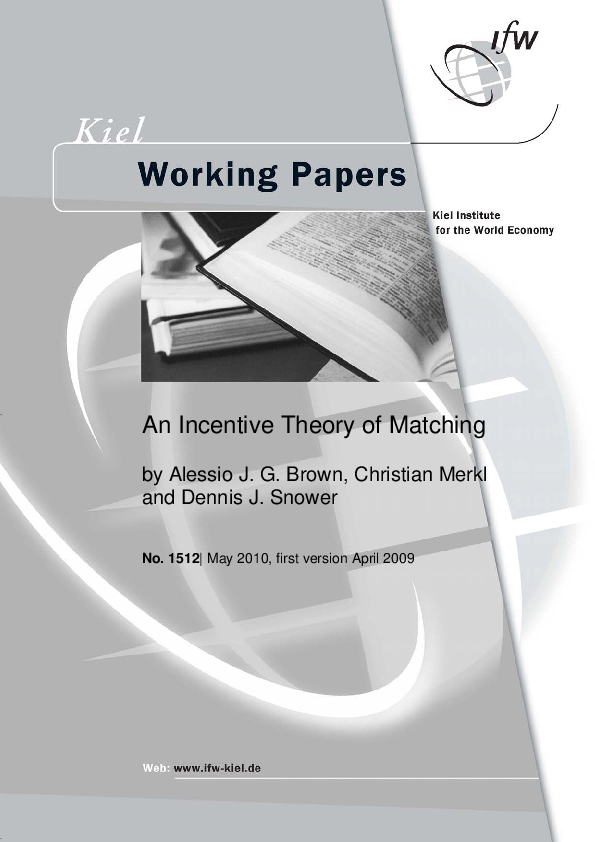Authors
Publication Date
JEL Classification
Key Words
This paper presents a theory of the labor market matching process in terms of
incentive-based, two-sided search among heterogeneous agents. The matching process
is decomposed into its two component stages: the contact stage, in which job searchers
make contact with employers and the selection stage, in which they decide whether
to match. We construct a theoretical model explaining two-sided selection through
microeconomic incentives. Firms face adjustment costs in responding to heterogeneous
variations in the characteristics of workers and jobs. Matches and separations are
described through rmsjob o¤er and ring decisions and workersjob acceptance and
quit decisions. Our calibrated model for the U.S. can account for important empirical
regularities, such as the large volatilities of labor market variables, that the conventional
matching model cannot.






